Table of Contents
Hello knowledge seekers! Welcome back to Skilcamp’s ultimate guide to the mistakes in the digital forensics course in India you make and how to avoid them. Typically, if you see, the topic of digital forensics is highly popular and interesting. In today’s time, the need for competent experts in digital forensics is rapidly increasing.
Now as more and more learners seek digital forensics jobs commercial, taking the right digital forensics course in Hindi or any other language is no longer optional. However, while you are on your way to learning the digital forensics course in India, it is noticed most of the students make a lot of mistakes. To help you avoid these mistakes and build a successful career in this intriguing subject, Skilcamp is back with a new guide.
In this guide, we will be covering the list of the top 10 mistakes you make after taking a digital forensics course in India and how to avoid them. So, without any delays, let us quickly get into it and start making a real difference in your career now!
10 Mistakes In Digital Forensics Course In India and How to Avoid Them
1.Failing to Commit to Lifelong Learning

The first mistake you make after studying a digital forensics course in India is neglecting the process of continuous learning. It’s good you thought and took the initiative to learn digital forensics online, still, you need to understand that learning through the course is not sufficient. You need to continuously invest your time in professional development.
How to Prevent This?
To avoid this mistake in the future –
- Stay Updated: Make a habit of keeping up with the latest developments in digital forensics, such as changes in terminology, software, and hardware applications.
- Engage with the Community: Get involved in professional organizations, participate in online forums, and seek out additional educational opportunities to stay connected and informed.
2.Lacking a Focused Specialization
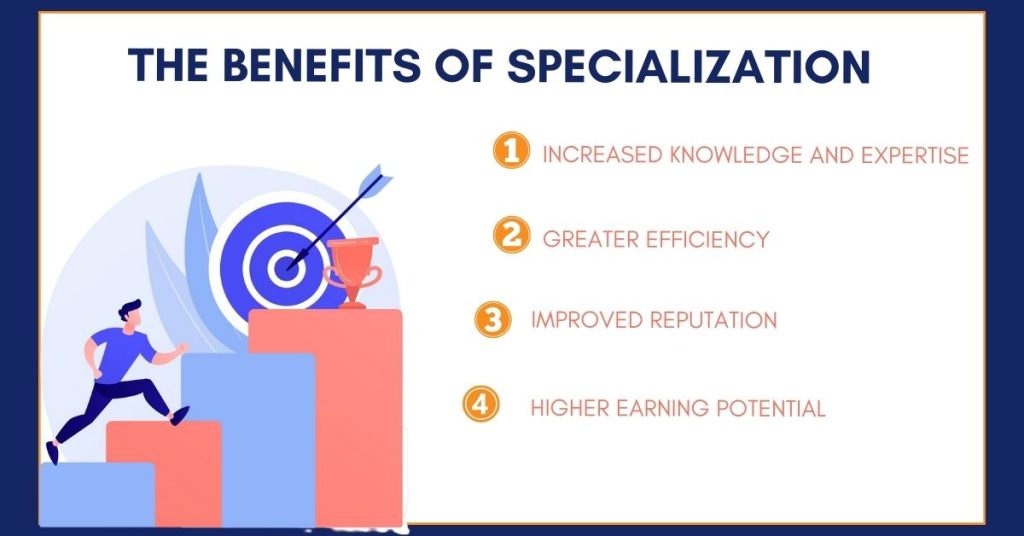
The second most common mistake you make in digital forensics that makes it difficult for you to find the right digital forensics jobs commercial is the lack of focused specialization. Ideally, it can be seen that digital forensics is a broad field with various sub-disciplines like network forensics, mobile forensics, and incident response.
Failing to specialize in one focused field can hinder your professional growth. In today’s time, employers highly value those who have specialized training and relevant experience. Hence, instead of focusing on mastering everything, try to focus on one aspect and excel in that niche.
How to Prevent This?
To avoid this mistake, work on two aspects:
- Identify Your Niche: Find out which area of digital forensics excites you the most and invest time in mastering that specialization.
- Pursue Advanced Training: Look for specialized courses, certifications, and workshops that cater to your chosen field.
3.Skipping Hands-On Experience
The third on the list of top mistakes you can make after studying a digital forensics course in India is skipping the hands-on experience. Yes, it’s true finding the ideal digital forensics course in Hindi or any other language you are comfortable with is the key.
Still, in digital forensics, practical experience is as critical as theoretical knowledge. Nowadays, employers value candidates who have the right skills that meet real-world scenarios. Hence, problem-solving skills are becoming highly valuable
How to Prevent This?
To avoid this mistake, focus on –
- Pursue Internships: Look for opportunities to gain practical experience through internships or volunteer positions.
- Engage in Practical Projects: Take on hands-on projects that allow you to apply theoretical knowledge in real-world contexts.
- Collaborate with Industry Professionals: Work alongside seasoned professionals to gain insights into practical applications and industry challenges.
4.Neglecting the Development of Soft Skills
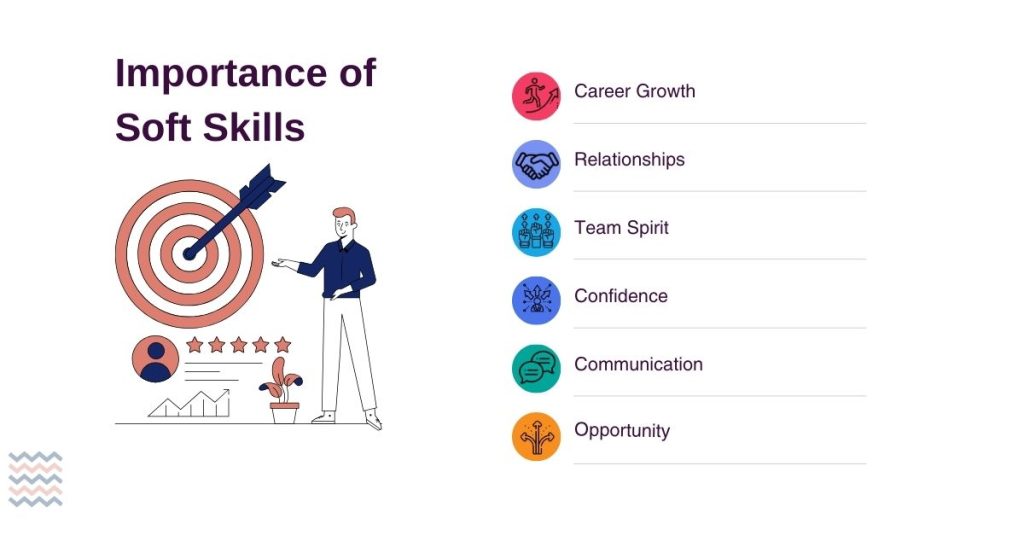
Another key mistake you make after studying a digital forensics course in India is neglecting the learning of soft skills. In today’s dynamic evolution, acquiring only technical skills in any niche is no longer sufficient. You also need to acquire soft skills like communication, teamwork, and critical thinking.
Digital professionals are required to work with interdisciplinary teams, consult with legal experts, and need to explain complex technical concepts to non-experts. So, while you purchase a Digital Forensics Course In Hindi, try to also give importance to soft skills.
How to Prevent This?
To avoid this mistake, focus on –
- Enhance Communication Skills: Practice explaining technical information clearly and concisely to various audiences.
- Strengthen Team Collaboration: Develop your ability to work effectively within a team, recognizing the importance of collaboration.
- Cultivate Critical Thinking: Focus on improving your ability to analyze situations from multiple angles, which is essential for solving complex forensic challenges.
5.Failing to Verify and Validate Tools
The next on the list of common mistakes to avoid after studying a digital forensics course in India is skipping to verify and validate tools. Ideally, for conducting a digital forensics investigation, learning about the tools is the backbone of your analysis.
It’s good you’ve shown an interest in learning more about digital forensics, still, if you are using tools that are outdated or improperly configured, it can produce inaccurate results. This as a result leads to compromising the integrity of your investigation and the validity of the evidence presented.
How to Prevent This?
To avoid this mistake, focus on –
- Regularly Update Tools: Ensure that your tools are always up to date with the latest versions and patches.
- Cross-Reference Outputs: Use multiple tools to cross-check the results and confirm their accuracy.
- Validate Tools: Before deploying a tool in an investigation, run validation tests to ensure it functions correctly and produces reliable results.
6.Overlooking the Importance of Chain of Custody
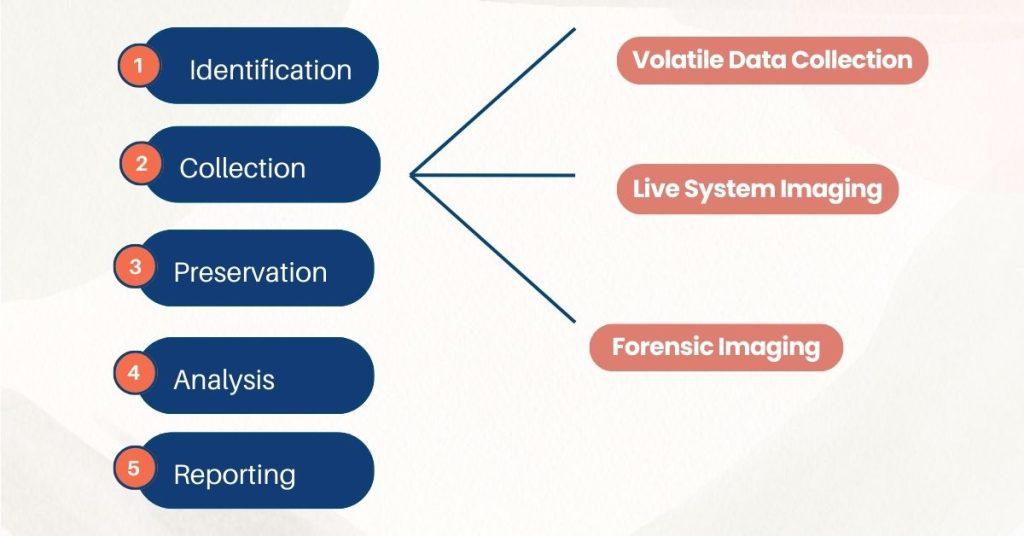
The sixth point on the list of common mistakes for finding the ideal digital forensics jobs commercial in India is neglecting the importance of chain of custody. You need to understand that any lapse in the custody process can lead to significant doubt on the integrity of the evidence. This makes the whole process inadmissible in court.
How to Prevent This?
To avoid this mistake, focus on –
- Keep Detailed Records: Document every interaction with the evidence, including who accessed it, when, and why.
- Use Secure Storage: Store digital evidence in secure, controlled environments to prevent unauthorized access.
- Label Evidence Properly: Ensure that all evidence is clearly labeled and tracked throughout the investigation process.
7.Neglecting Data Preservation
Another significant mistake on the list of the top 10 mistakes you make after studying a digital forensics course in India is neglecting data preservation. We all know data is highly volatile and neglecting to preserve it properly can lead to the loss of critical evidence.
Hence, once the data is collected, you must take the necessary steps to prevent any alteration, deletion, or corruption.
How to Prevent This?
To avoid this mistake, focus on –
- Create Forensic Copies: Immediately create forensic images or copies of the data to preserve its original state.
- Use Write-Blockers: Employ write-blocking hardware or software to prevent any changes to the original data during analysis.
8.Lack of Knowledge About Legal Procedures
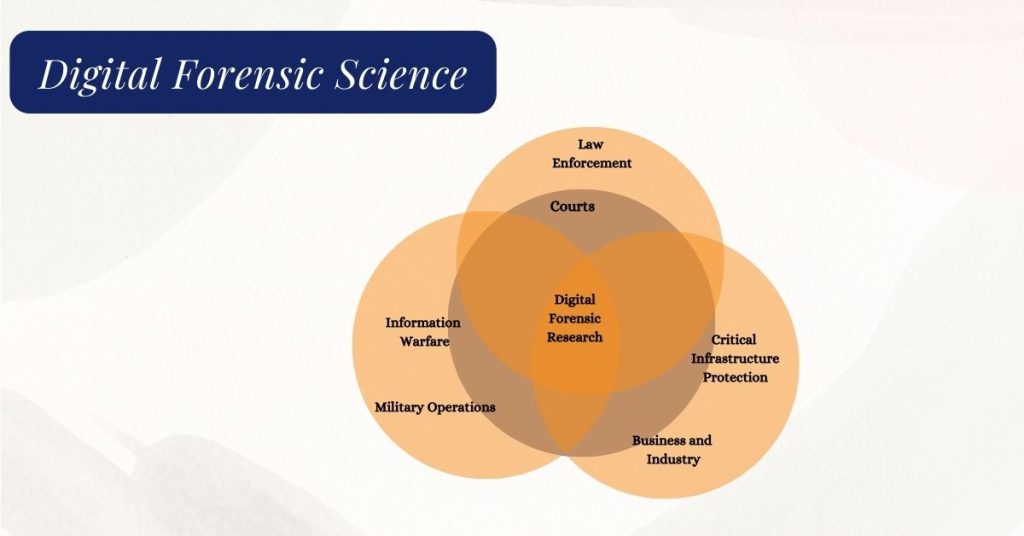
The eighth mistake on the list that can derail your efforts in finding the right digital forensics jobs commercial in India is the lack of knowledge about legal procedures. It’s good that you have acquired knowledge about digital forensics through online courses, still, understanding the legal framework is highly essential.
Lack of knowledge about relevant laws and procedures can lead to the mishandling of evidence.
How to Prevent This?
To avoid this mistake, focus on –
- Stay Educated: Regularly update your knowledge of the legal standards and procedures relevant to digital forensics.
- Consult Legal Experts: When in doubt, consult with legal professionals who specialize in digital evidence to ensure compliance.
- Follow Best Practices: Adhere to established guidelines and protocols for evidence collection, handling, and reporting to maintain legal integrity.
9.Failure to Document Everything
Next on the list of the common types of mistakes you make after studying a digital forensics course in India is the failure to document everything. You need to understand even if you are learning online, try to jot down everything. Documentation is perhaps the cornerstone of a credible digital forensics investigation.
Failing to document your actions, findings, and processes can leave critical gaps in your case, making it difficult to defend your conclusions.
How to Prevent This?
To avoid this mistake, focus on –
- Document Every Step: Record all actions taken during the investigation, including tool usage, analysis steps, and findings.
- Maintain a Logbook: Keep a detailed logbook of all activities and observations throughout the investigation.
- Include Screenshots and Reports: Supplement your documentation with screenshots, reports, and other visual aids that support your findings.
10.Relying on One Tool or Technique
The tenth key mistake you make in digital forensics is to rely on a specific tool or technique. While you are enrolling for a digital forensics course in Hindi avoid limiting yourself by using only one tool. Yes, specialization in a specific tool is crucial. However, if you constantly rely on one tool, it can limit the depth and reliability of your investigation.
Different tools may reveal different aspects of the evidence, and using a variety of methods ensures a more comprehensive analysis. By relying on multiple tools, you can cross-validate your findings and avoid potential biases or errors introduced by a single method.
How to Prevent This?
To avoid this mistake, focus on –
- Diversify Your Toolkit: Use a range of tools and techniques to analyze evidence, ensuring a well-rounded investigation.
- Cross-Validate Results: Compare findings from different tools to confirm their accuracy and consistency.
- Stay Open to New Tools: Keep an eye out for emerging tools and technologies that can enhance your investigative capabilities.
Conclusion
In conclusion, avoiding these common mistakes in your digital forensics will surely let you unveil the right digital forensics jobs commercial in India. As mentioned above the key to becoming an expert digital forensics professional lies in continuous learning, specialization, hands-on experience, and a solid understanding of legal procedures.
So, students and career builders, are you ready to take your digital forensics skills to the next level? If yes, then start by applying the above top 10 tips and ensure you stand out as an expert professional. Need any help in building a successful path toward digital forensics?
Then don’t miss out on Skilcamp’s Digital Forensics Course In Hindi. Enrol now and stay ahead in your career journey!
FAQs
1.What is the difference between Computer Forensics and Digital Forensics?
Ans. Computer forensics is a subset of digital forensics focused specifically on investigating data found on computers and related storage devices. It involves recovering, analyzing, and presenting evidence from computers, typically for legal purposes.
On the other hand, digital forensics is a broader field that includes not just computers but also mobile devices, network traffic, IoT devices, and cloud environments.
2.What is digital forensics in Cybersecurity?
Ans. Digital forensics in cybersecurity involves the process of identifying, preserving, analyzing, and presenting digital evidence. Especially in the context of cybercrimes like hacking, data breaches, and online fraud. It plays a crucial role in uncovering how an attack was carried out, what data was compromised, and who was responsible.
3.Who is eligible for the Cybersecurity and Digital Forensics course?
Ans. The eligibility for Cybersecurity and Digital Forensics courses varies from each other. Still, both courses require a background in science and mathematics for undergraduate programs, and a bachelor’s degree in computer science, IT, or a related field for postgraduate courses.
If you are looking for a basic course, you must possess basic knowledge of computer systems, and networks. Conversely, for advanced courses, you need relevant work experience in IT or cybersecurity. Along with analytical thinking and problem-solving skills.
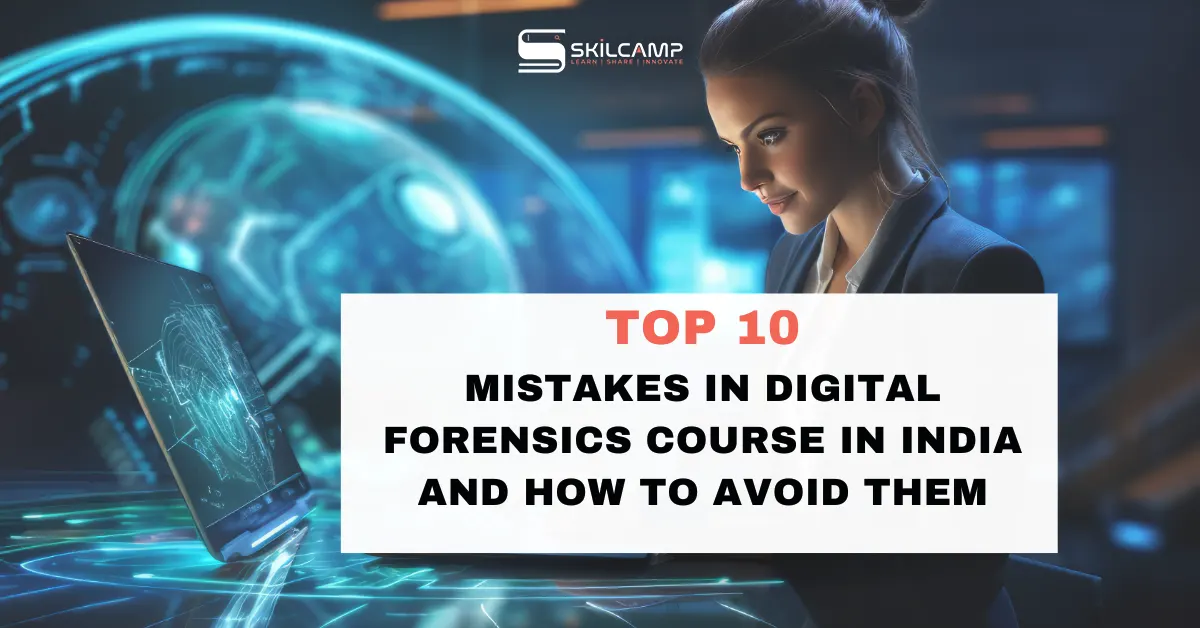
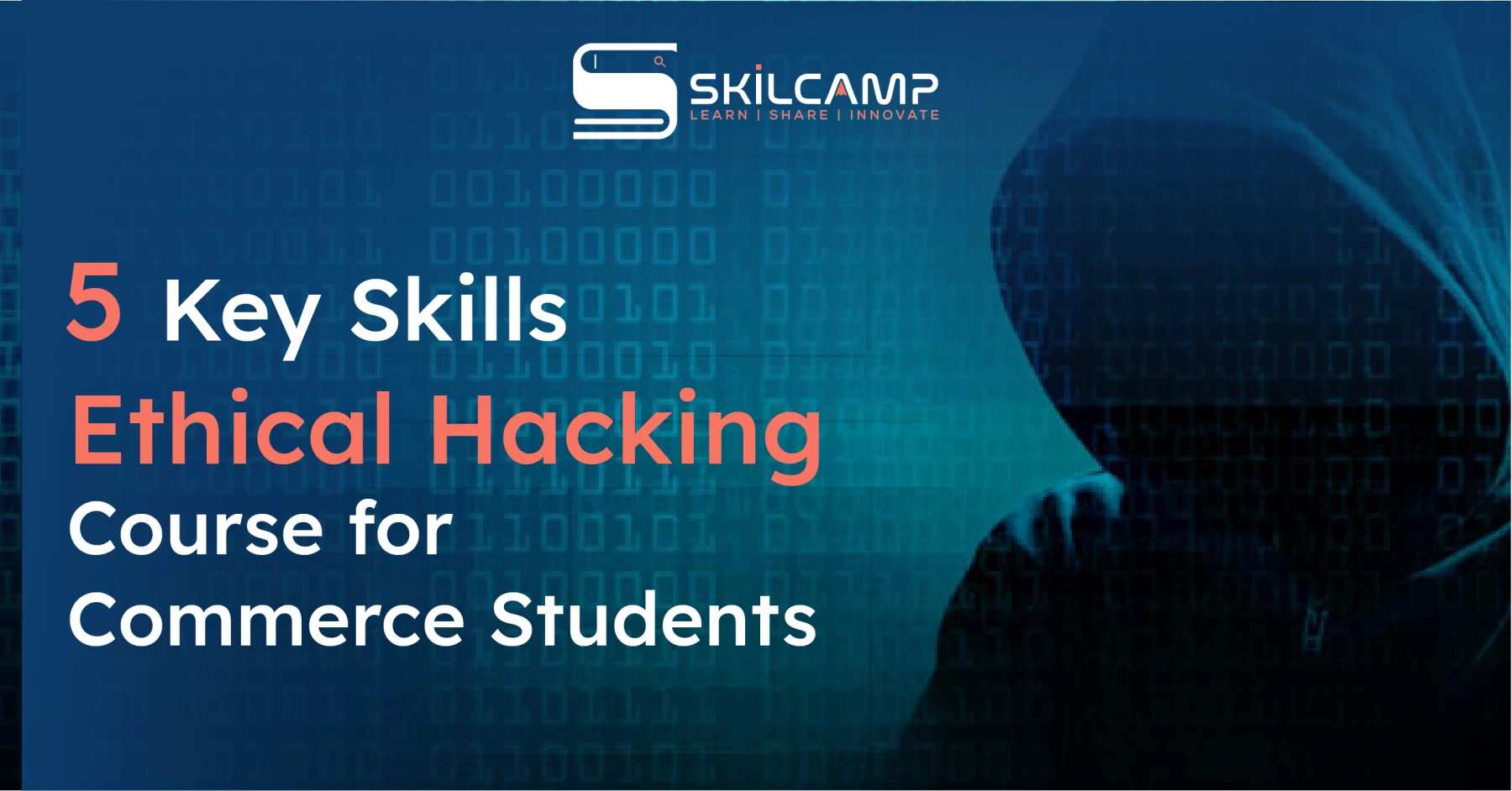


Leave a Reply